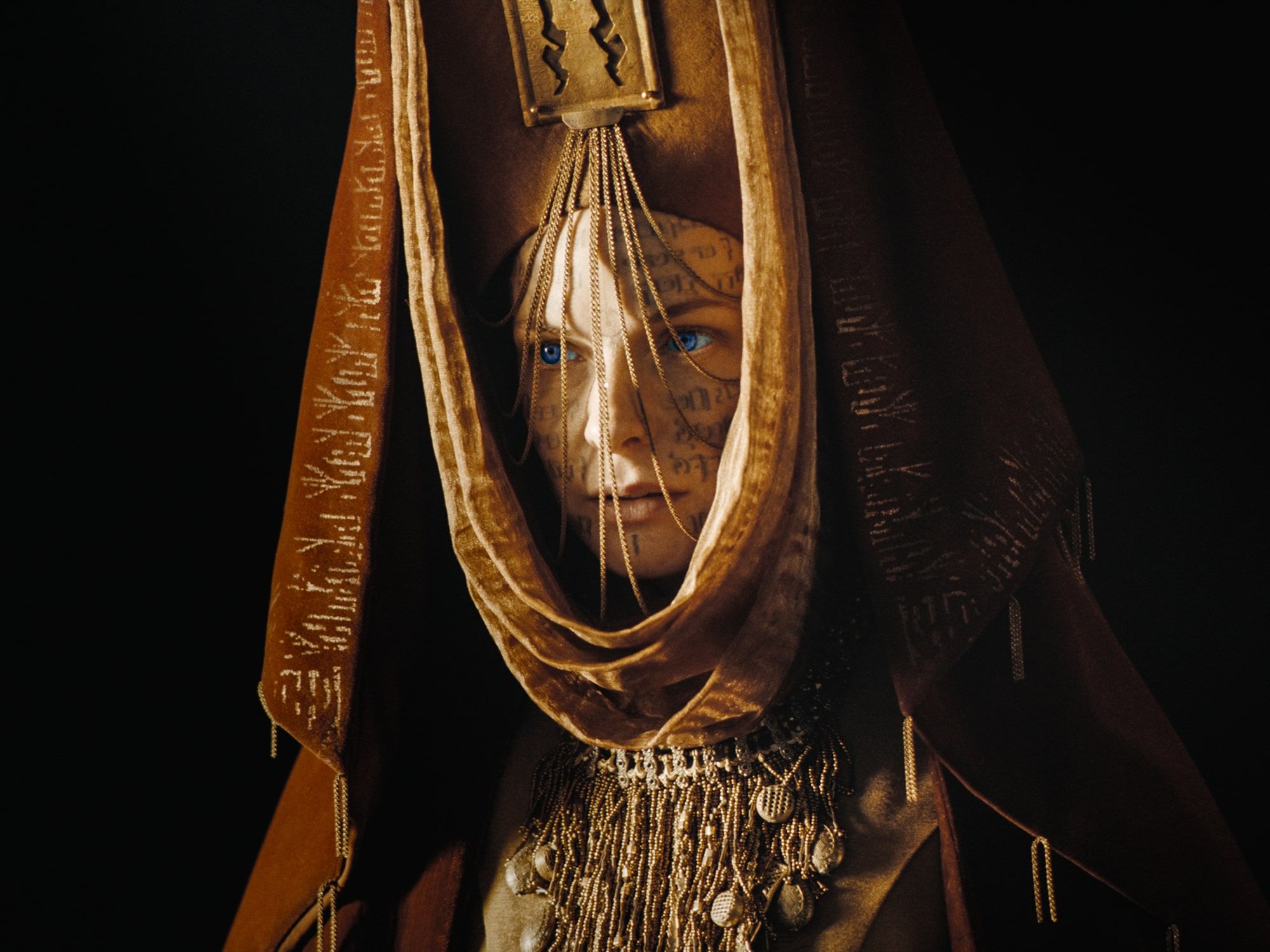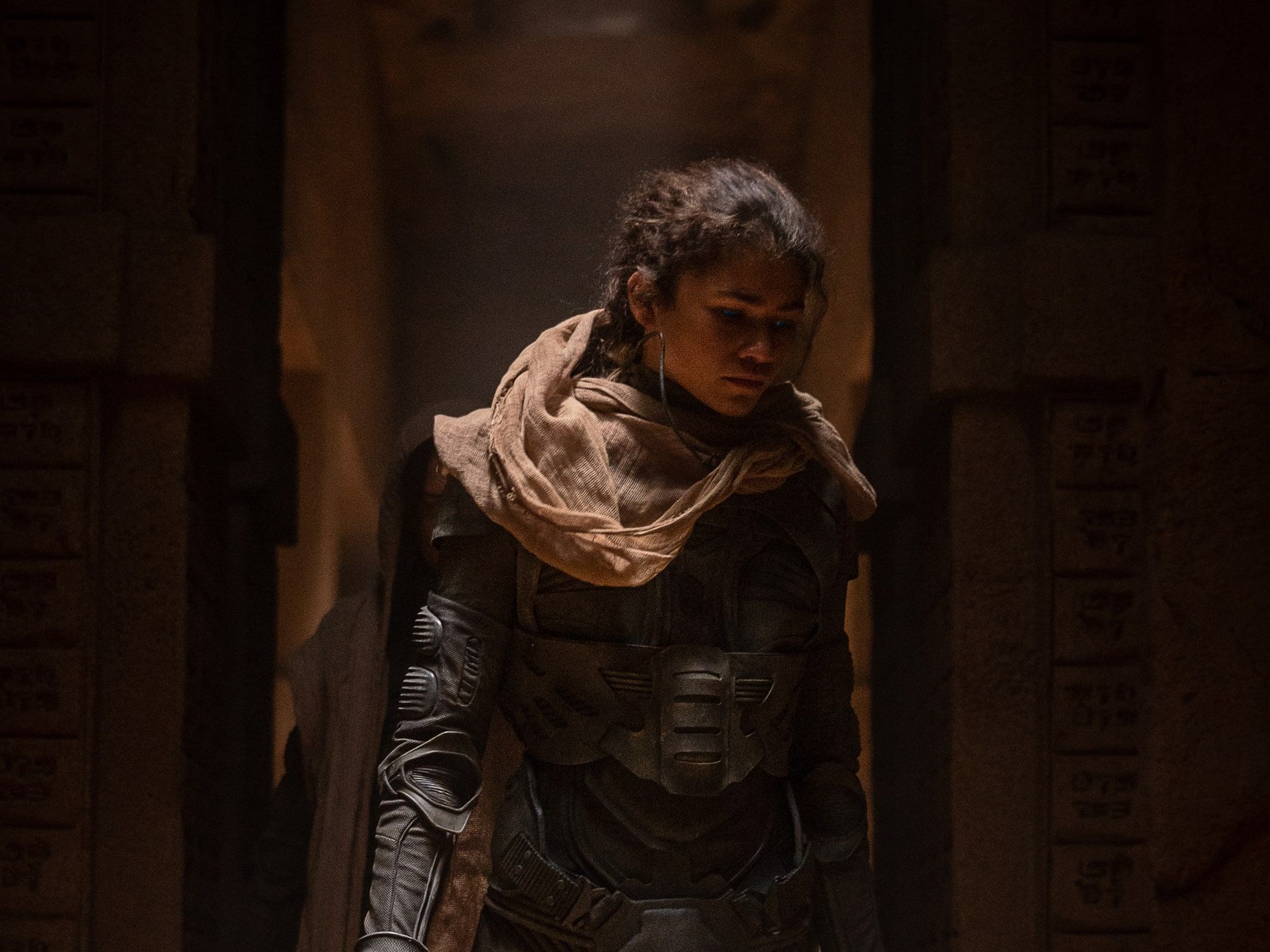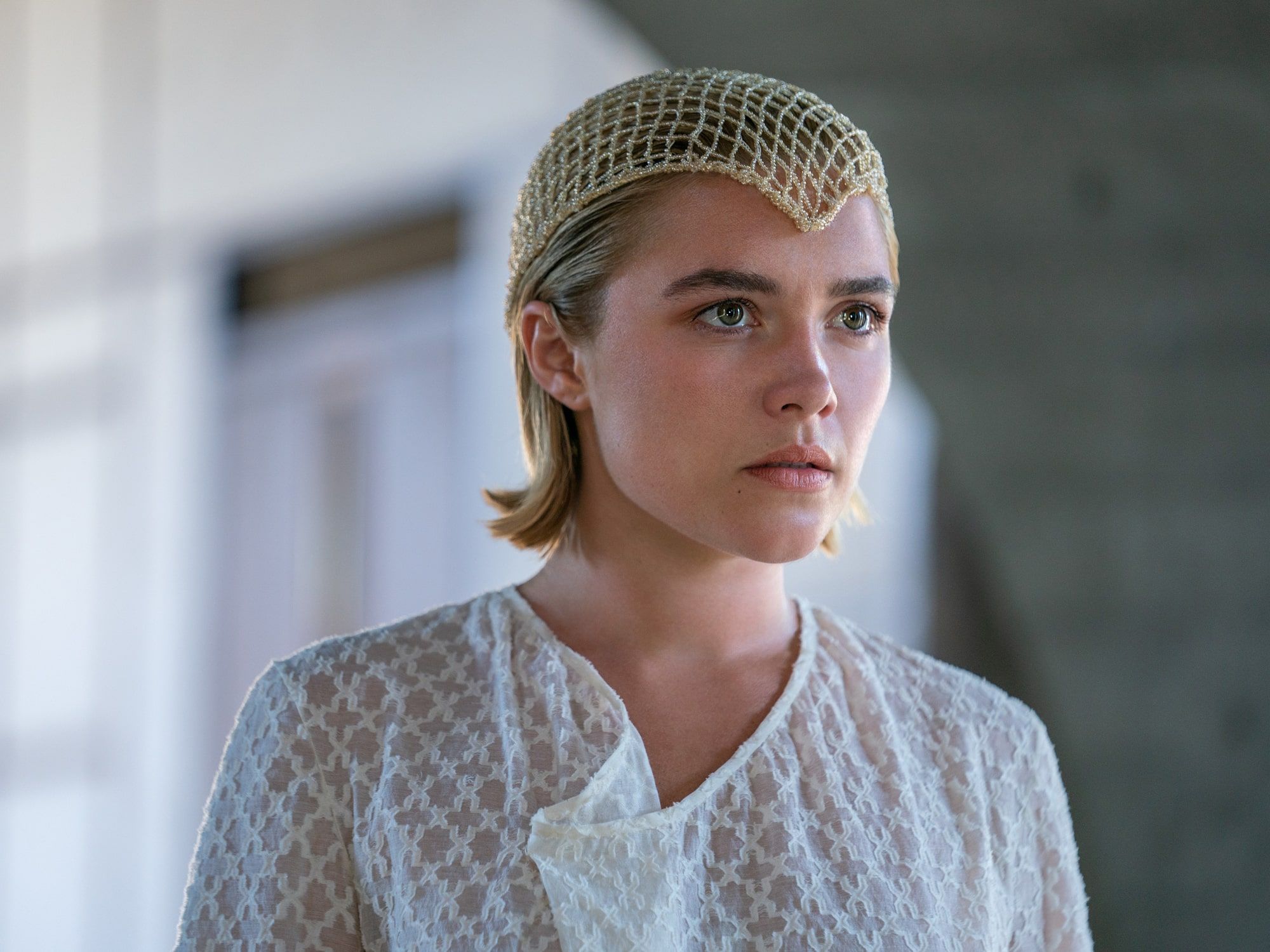![[object Object]](https://admin.thus.ph/uploads/dune_68739995f3.jpg)
How the Women of “Dune: Part Two” Added Spice to the Series
Move over Paul.

Karl R. De Mesa
2024-03-28T00:26:04.000Z
We’re past the opening weekend for “Dune Part Two” and the build-up has proven to be both critical and box office gold. The hype is incredibly real and as audiences come out of theaters with this cinematic version of the original novel, let’s take a moment to dive deeper by getting to know the women that shaped this story.
Roughly covering the second half of Frank Herbert’s “Dune,” this installment in director Denis Villenueve’s franchise deepens the story of the female characters, in contrast to Part One, where we were focused on Paul Atreides and his journey of loss. From the surprise assassination of Paul’s father (making him legally the duke) by their rival clan, to his exile into the harsh desert world of Arrakis, Paul eventually earned a place among the powerful but superstitiously insular Fremen of the planet’s deep desert.
In Part One as well, we saw how the giant sandworms, called Shai-Hulud, were both feared and needed in the production of the precious drug spice mélange. This was Herbert’s metaphor for our fossil fuels and spice was also the reason the Atreides family was wiped out, since it’s the only substance that enables interstellar travel.
In Part Two the women characters are prominently more three dimensional, particularly the members of the enigmatic secret society the Bene Gesserit, whose propaganda and plans extend through genetic engineering programs and myth-sowing—we saw some of those long-seeded myths keep Paul and his mother safe, tagging them as candidates for the prophesied mother and son who would one day liberate Fremen from their oppressed status.
Because of their political power, almost superhuman fighting abilities, and far-reaching plans of population cross-breeding, the Bene Gesserit are despised and feared. Some call them ruthless witches pulling the strings of the male leaders, while the communities they protect adore them as harbingers of wisdom.
In the context of Paul’s rise as the prophesied Kwisatz Haderach, the control of spice, and the absolute disruption of far-reaching plans by secret societies and noble houses both, we see how the actions of the movie’s women, on all sides, as well as their strength and convictions, steer the fate of the galaxy and how, in such a patriarchal militarized world, their style often proved the most effective.

Reverend Mother Jessica Atreides | Sacred mother of the messiah
In Part Two, Paul's mother, played by Rebecca Ferguson, faces her own transformation. Her shamanic journey is kick started when Stilgar, the chief of the local Fremen tribe they’re staying with, proposes they earn their place in the community by taking up vacant positions.
Paul will take the place of the soldier Jamis, whom he dueled to death in Part One. Jessica, since she’s already a high-ranking member of the witchy cult of the Bene Gesserit, can take the place of the community’s wise woman. Their current one is ailing, elderly, and just one grain of sand away from death. Jessica is cajoled into an initiation, reluctantly drinking the sandworm distillate the Fremen call “Water of Life.”
As she transmutes the poison within her in great suffering (called the Spice Agony), Jessica mutates from Lady Jessica, noble consort of House Atreides, into Reverend Mother Jessica, inheritor of the ancestral memories of all the Reverend Mothers who came before her.
She comes out of it with the trademark blue eyes of the mélange addict as well as centuries of literal wisdom. Biggest issue here is that she didn’t tell anybody she was pregnant when she drank the Water. The process of transmutation also “awakened” her unborn child. Through her newfound powers of ancestral memory and prescience, plus the powers of her child (which the Bene Gesserit call an “Abomination”), mother and unborn daughter are able to talk telepathically.
“What have we done? She is pregnant!” cries out the old Reverend Mother as she dies, passing her powers to Jessica. Frankly, the moments of communication between Jessica and the unborn baby, who makes it known she is named Alia, are some of the creepiest scenes in Part Two. I can certainly understand why pregnant women don’t become Reverend Mothers.
“She’s a mother, she’s a concubine, she’s a soldier,” Rebecca Ferguson said in an interview “Vanity Fair.”

Chani | Fremen soldier and Paul’s wife
Played by Zendaya, Chani develops from a zealous native Fremen fighter into the person who guides, teaches, and ultimately loves Paul Atreides.
Without Chani’s soft power and, later on her steadfast refusal to buy into the religious fanaticism he fans in her people, Paul might not have been assimilated into the Fremen at all. Conversely, he wouldn’t have tragically become the thing he so resisted.
This is a distinct departure from Chani in Herbert’s book, since she’s almost exclusively a rah rah fan all the way, teaching him how the Fremen collect water, their fighting ways and cultural traditions. It was Chani who taught him the meaning of why riding the giant sandworm Shai-Hulud was both a coming of age for the boys as well as a form of prayer, honoring the harsh god of their desert planet.
In later scenes and in the pivotal moments of Paul’s ascendancy as the Lisan al Gaib (to the Fremen) and Kwisatz Haderach (to the Bene Gesserit), only Chani sees him clear-eyed, observes Paul without the obfuscating lens of fanaticism of her more religious brethren. She also witnesses all this with an undeniable love.
What she chooses at the end of Part Two may very well depart from the books and infuriate Herbert purists, but it is a plot turn that I cannot fault at all in the context of Villeneuve’s story. In her unique way, Chani decided to stick to her guns even if it meant eschewing her people’s wishes for revenge.Princess Irulan

Corrino | Dune chronicler and imperial daughter
Florence Pugh adds even more gravitas and nuance to the world-building as the imperial daughter, Irulan.
House Corrino is the ruling house of the galaxy and being the eldest daughter of the reigning Padishah Emperor, Shaddam IV (played by Christopher Walken). Her father’s pretty indecisive here and it was mostly Irulan, highly trained by the Bene Gesserit and already playing politics form a young age, who advised the emperor about Arrakis and the uprising among the Fremen.
Irulan was mostly concerned about the best way to keep her father on the throne and keeping spice production from being disrupted by what they viewed as a minor rebellion on Arrakis. Through it all, she suspects there’s more than just a native revolt going on in Dune. She records all this down in her meticulous diaries. Later on, these entries will become the basis for the chronicle of the rise of Paul, from rebel to usurper. </p><p id="">In Part Two, Irulan realizes she isn’t as empowered as she thought when it steadily becomes clear she might need to marry the sociopathic Feyd-Rautha Harkonnen, who is slated to ascend to the baronial seat.
While Pugh portrayed her as a calculating royal with Bene Gesserit loyalties, Villeneuve also made it clear she's someone who’s caged by her position and nobility. Pugh infuses Irulan with grace in a tough environment that's certainly not an enviable one despite its loftiness.</p><p id="">"One thing that was important for me is that the audience will never perceive Irulan as a victim, and I needed an actress that would be able to convey tremendous amounts of information with no lines and just her eyes,” said director Denis Villeneuve.
In the ending Irulan makes a choice that is likely the lesser of two evils, sparing millions in the war that would inevitably break out if a political transition doesn’t go so smoothly. Here’s hoping we see more of how Irulan develops as both chronicler and imperial consort in the third movie, “Dune Messiah.”

Alia Atreides | Unborn mystic
The most mysterious yet undeniably pivotal woman in Part Two is Anya Taylor-Joy in the role of the unborn Alia Atreides.
She only figures in a few minutes of screen time as a vision, the rest she’s just voice acting as a fetus in Jessica’s womb. In one of Paul’s spice fugues he sees a black-shrouded figure striding through the desert as people die all around them. Later, he receives a more vivid iteration of this vision and the shrouded figure is revealed as Alia. Awakened in the womb, possessing all the powers of a reverend mother, she’s able to communicate with anyone who shares the same prescient abilities.
Alia is certainly the creepiest persona in the trinity of Paul, Jessica, and Alia. They are comparably the Mother, Son, and Holy Ghost in the rising Atreides order. Paul’s oracular powers hadn’t even settled in yet, but Alia was born with hers, enabling her to tell Paul about their family’s destiny, the narrow way to humanity’s collective survival (later called The Golden Path), and how the Atreides are inextricably linked to their rival the Harkonnens.
“I was deeply happy with the fact that Anya accepted this challenge of playing a ghost and a secret,” said director Villeneuve to “Entertainment Weekly.”
One of the best scenes is how Alia was portrayed in the vision as standing beside an immense body of water. A clever plant about the terraforming of Arrakis, foreshadowed by the claims of the planetologist Liet Kynes and the superstitious prophecies of Stilgar that Arrakis may yet become a green paradise. But only under the right leader.
Hopefully, we’ll get to see more of Taylor-Joy in the third installment and watch her develop into full agency as the godlike warrior woman Saint Alia of the Knife.
Roughly covering the second half of Frank Herbert’s “Dune,” this installment in director Denis Villenueve’s franchise deepens the story of the female characters, in contrast to Part One, where we were focused on Paul Atreides and his journey of loss. From the surprise assassination of Paul’s father (making him legally the duke) by their rival clan, to his exile into the harsh desert world of Arrakis, Paul eventually earned a place among the powerful but superstitiously insular Fremen of the planet’s deep desert.
In Part One as well, we saw how the giant sandworms, called Shai-Hulud, were both feared and needed in the production of the precious drug spice mélange. This was Herbert’s metaphor for our fossil fuels and spice was also the reason the Atreides family was wiped out, since it’s the only substance that enables interstellar travel.
In Part Two the women characters are prominently more three dimensional, particularly the members of the enigmatic secret society the Bene Gesserit, whose propaganda and plans extend through genetic engineering programs and myth-sowing—we saw some of those long-seeded myths keep Paul and his mother safe, tagging them as candidates for the prophesied mother and son who would one day liberate Fremen from their oppressed status.
Because of their political power, almost superhuman fighting abilities, and far-reaching plans of population cross-breeding, the Bene Gesserit are despised and feared. Some call them ruthless witches pulling the strings of the male leaders, while the communities they protect adore them as harbingers of wisdom.
In the context of Paul’s rise as the prophesied Kwisatz Haderach, the control of spice, and the absolute disruption of far-reaching plans by secret societies and noble houses both, we see how the actions of the movie’s women, on all sides, as well as their strength and convictions, steer the fate of the galaxy and how, in such a patriarchal militarized world, their style often proved the most effective.

Rebecca Ferguson as Jessica Atreides
Reverend Mother Jessica Atreides | Sacred mother of the messiah
In Part Two, Paul's mother, played by Rebecca Ferguson, faces her own transformation. Her shamanic journey is kick started when Stilgar, the chief of the local Fremen tribe they’re staying with, proposes they earn their place in the community by taking up vacant positions.
Paul will take the place of the soldier Jamis, whom he dueled to death in Part One. Jessica, since she’s already a high-ranking member of the witchy cult of the Bene Gesserit, can take the place of the community’s wise woman. Their current one is ailing, elderly, and just one grain of sand away from death. Jessica is cajoled into an initiation, reluctantly drinking the sandworm distillate the Fremen call “Water of Life.”
As she transmutes the poison within her in great suffering (called the Spice Agony), Jessica mutates from Lady Jessica, noble consort of House Atreides, into Reverend Mother Jessica, inheritor of the ancestral memories of all the Reverend Mothers who came before her.
She comes out of it with the trademark blue eyes of the mélange addict as well as centuries of literal wisdom. Biggest issue here is that she didn’t tell anybody she was pregnant when she drank the Water. The process of transmutation also “awakened” her unborn child. Through her newfound powers of ancestral memory and prescience, plus the powers of her child (which the Bene Gesserit call an “Abomination”), mother and unborn daughter are able to talk telepathically.
“What have we done? She is pregnant!” cries out the old Reverend Mother as she dies, passing her powers to Jessica. Frankly, the moments of communication between Jessica and the unborn baby, who makes it known she is named Alia, are some of the creepiest scenes in Part Two. I can certainly understand why pregnant women don’t become Reverend Mothers.
“She’s a mother, she’s a concubine, she’s a soldier,” Rebecca Ferguson said in an interview “Vanity Fair.”

Zendaya as Chani
Chani | Fremen soldier and Paul’s wife
Played by Zendaya, Chani develops from a zealous native Fremen fighter into the person who guides, teaches, and ultimately loves Paul Atreides.
Without Chani’s soft power and, later on her steadfast refusal to buy into the religious fanaticism he fans in her people, Paul might not have been assimilated into the Fremen at all. Conversely, he wouldn’t have tragically become the thing he so resisted.
This is a distinct departure from Chani in Herbert’s book, since she’s almost exclusively a rah rah fan all the way, teaching him how the Fremen collect water, their fighting ways and cultural traditions. It was Chani who taught him the meaning of why riding the giant sandworm Shai-Hulud was both a coming of age for the boys as well as a form of prayer, honoring the harsh god of their desert planet.
In later scenes and in the pivotal moments of Paul’s ascendancy as the Lisan al Gaib (to the Fremen) and Kwisatz Haderach (to the Bene Gesserit), only Chani sees him clear-eyed, observes Paul without the obfuscating lens of fanaticism of her more religious brethren. She also witnesses all this with an undeniable love.
What she chooses at the end of Part Two may very well depart from the books and infuriate Herbert purists, but it is a plot turn that I cannot fault at all in the context of Villeneuve’s story. In her unique way, Chani decided to stick to her guns even if it meant eschewing her people’s wishes for revenge.Princess Irulan

Florence Pugh as Irulan
Corrino | Dune chronicler and imperial daughter
Florence Pugh adds even more gravitas and nuance to the world-building as the imperial daughter, Irulan.
House Corrino is the ruling house of the galaxy and being the eldest daughter of the reigning Padishah Emperor, Shaddam IV (played by Christopher Walken). Her father’s pretty indecisive here and it was mostly Irulan, highly trained by the Bene Gesserit and already playing politics form a young age, who advised the emperor about Arrakis and the uprising among the Fremen.
Irulan was mostly concerned about the best way to keep her father on the throne and keeping spice production from being disrupted by what they viewed as a minor rebellion on Arrakis. Through it all, she suspects there’s more than just a native revolt going on in Dune. She records all this down in her meticulous diaries. Later on, these entries will become the basis for the chronicle of the rise of Paul, from rebel to usurper. </p><p id="">In Part Two, Irulan realizes she isn’t as empowered as she thought when it steadily becomes clear she might need to marry the sociopathic Feyd-Rautha Harkonnen, who is slated to ascend to the baronial seat.
While Pugh portrayed her as a calculating royal with Bene Gesserit loyalties, Villeneuve also made it clear she's someone who’s caged by her position and nobility. Pugh infuses Irulan with grace in a tough environment that's certainly not an enviable one despite its loftiness.</p><p id="">"One thing that was important for me is that the audience will never perceive Irulan as a victim, and I needed an actress that would be able to convey tremendous amounts of information with no lines and just her eyes,” said director Denis Villeneuve.
In the ending Irulan makes a choice that is likely the lesser of two evils, sparing millions in the war that would inevitably break out if a political transition doesn’t go so smoothly. Here’s hoping we see more of how Irulan develops as both chronicler and imperial consort in the third movie, “Dune Messiah.”

Alicia Witt as Alia in 1984's version of Dune
Alia Atreides | Unborn mystic
The most mysterious yet undeniably pivotal woman in Part Two is Anya Taylor-Joy in the role of the unborn Alia Atreides.
She only figures in a few minutes of screen time as a vision, the rest she’s just voice acting as a fetus in Jessica’s womb. In one of Paul’s spice fugues he sees a black-shrouded figure striding through the desert as people die all around them. Later, he receives a more vivid iteration of this vision and the shrouded figure is revealed as Alia. Awakened in the womb, possessing all the powers of a reverend mother, she’s able to communicate with anyone who shares the same prescient abilities.
Alia is certainly the creepiest persona in the trinity of Paul, Jessica, and Alia. They are comparably the Mother, Son, and Holy Ghost in the rising Atreides order. Paul’s oracular powers hadn’t even settled in yet, but Alia was born with hers, enabling her to tell Paul about their family’s destiny, the narrow way to humanity’s collective survival (later called The Golden Path), and how the Atreides are inextricably linked to their rival the Harkonnens.
“I was deeply happy with the fact that Anya accepted this challenge of playing a ghost and a secret,” said director Villeneuve to “Entertainment Weekly.”
One of the best scenes is how Alia was portrayed in the vision as standing beside an immense body of water. A clever plant about the terraforming of Arrakis, foreshadowed by the claims of the planetologist Liet Kynes and the superstitious prophecies of Stilgar that Arrakis may yet become a green paradise. But only under the right leader.
Hopefully, we’ll get to see more of Taylor-Joy in the third installment and watch her develop into full agency as the godlike warrior woman Saint Alia of the Knife.
Recommended

How the Women of “Dune: Part Two” Added Spice to the Series
Karl R. De Mesa

How Civilian Group "Atin Ito" Hopes to Turn the Tide at the West Philippine Sea
Angelo Cantera

Why Crime Novelist Ronaldo Vivo Jr. Put "Skeletons" in "God's Garden"
Karl R. De Mesa

PJ Ong: The Cebuano Designer Unleashed Upon the World After He Caged Cassette Tapes
Karl R. De Mesa

Why Workplace Inclusivity Works
Angelo Cantera

How You Can Help Prevent Suicide
Thus
